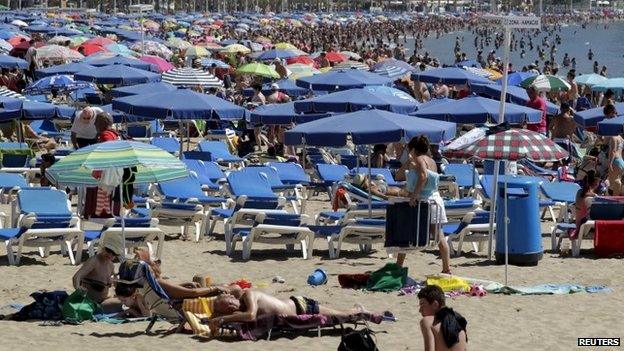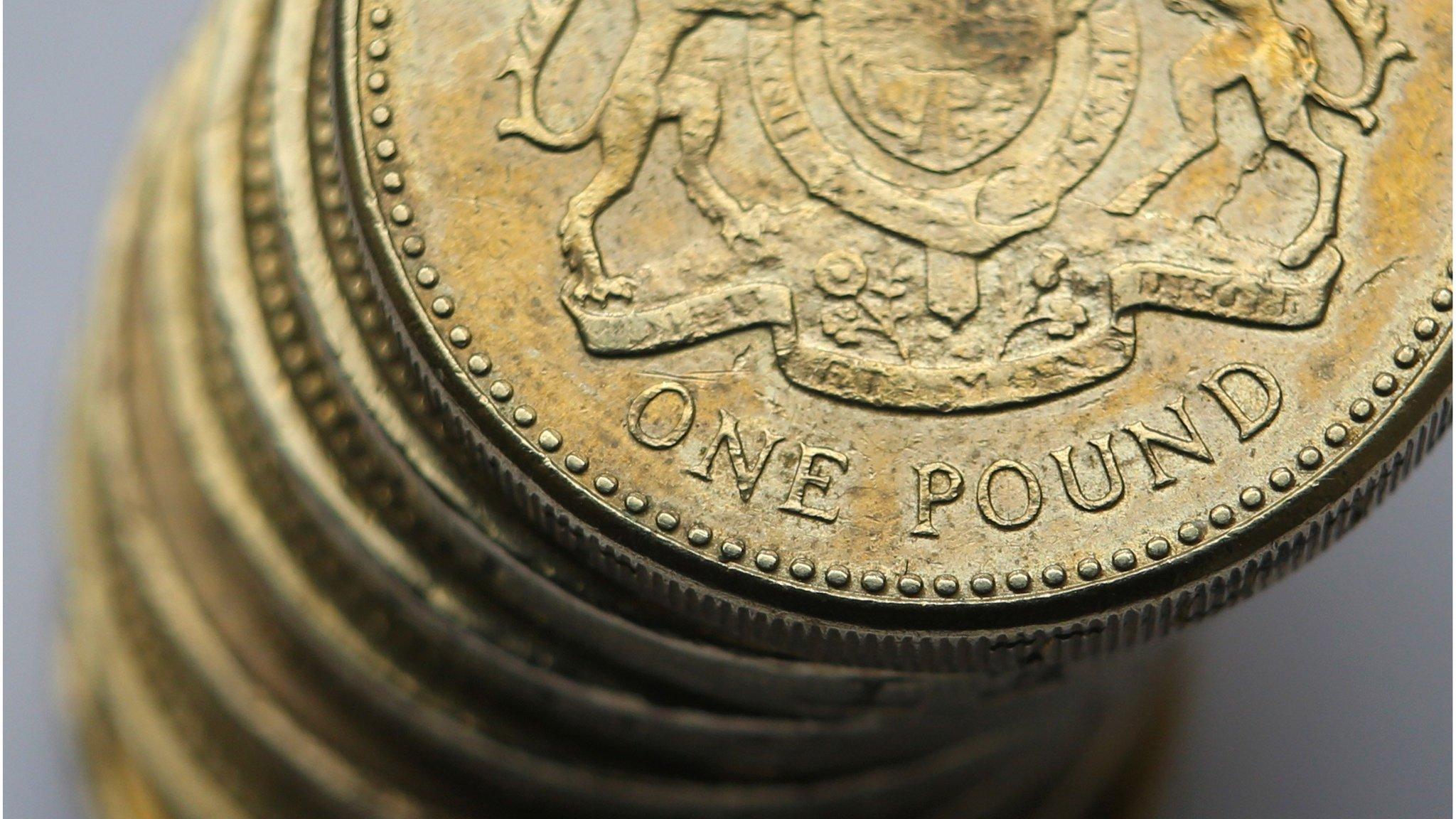Euro sales boom ahead of holidays
- Published

Holidaymakers want to cash in on the strong pound
The strength of the pound has resulted in a surge in the number of Britons buying foreign currencies ahead of the summer holidays, say foreign currency brokers.
Thomas Cook reported both a jump in the number of customers and the amount they are spending.
It said the number of euro transactions it completed between the end of February and early March was up by over a third on the same time last year.
Its sales by value were up 65%.
In the past fortnight alone, Thomas Cook - which has more than 800 High Street branches - says it has sold £22.8m (€31m) worth of euros.
Fraser Millar, its head of foreign exchange, told BBC Radio 5 live: "Some customers are forward buying for holidays they have already booked, while others are buying now before they have even booked their holiday."
The Post Office has also revealed that online sales of euros are up by more than a half on this time last year and adds that in one week in late January, when the pound hit 1.34 to the euro, sales rose 363%.
Saga Travel, which specialises in the retirement market, says that between February and April, euro sales were double that seen in 2014. Asda Money says they were up by 20%.
High volume deals
Online currency brokers, specialising in the expat and business markets, are also reporting a similar flood of transactions.
Slough-based brokerage HiFX says it saw new client numbers rise by 64% in the first few months of the year. It says most are Britons buying properties in the eurozone or topping up foreign bank accounts.
Caxton FX says that between February and April, sales of euros rose 286% on the same period in 2014.
Market analysts say that while sterling remains weak against the dollar, in Europe the pound is benefiting both from the relative strength of the UK economy and the continuing problems in the eurozone.
The European Central Bank recently introduced negative interest rates to try to boost growth, while questions remain over the future of Greece.
Best return
The pound is also gaining ground around the world, especially against popular holiday currencies such as the Turkish lira and the Thai baht.
Andrew Brown of Post Office Money says customers are increasingly choosing their holiday destination based on where they can get the best return.
"[Sterling's] biggest gains have been against the Scandinavian and Eastern European currencies," he says.
"People seem aware of this and are picking places like Mexico and Mauritius, where they know they can get more for their money."
Post Office says its sales of the Croatian kuna in April were up 91% on the same month in 2014.
Locking in
There is evidence that an uncertain general election result in the UK is affecting the way people are buying currency, according to some brokers.
Volatile trading on Friday saw sterling fall 1.3% to the dollar.
HiFx says the number of clients using so-called "forward contracts" to lock into the current market rate is up by more than a third.
These contracts allow buyers to book a large amount of foreign currency ahead of time by putting down a small deposit in advance. They are often used to fund property purchases.
Economists, however, say that despite recent nervousness, they expect the pound to continue to strengthen later in the year.
Chief economist with brokers World First, Jeremy Cook, told Radio 5 live: "I think if we see a quick and relatively painless resolution to what goes on in Greece, we may see a little bit of euro strength. In the longer term, however, I am looking to see sterling... come back up to the 1.45 level over the rest of the year."
- Published10 March 2015
